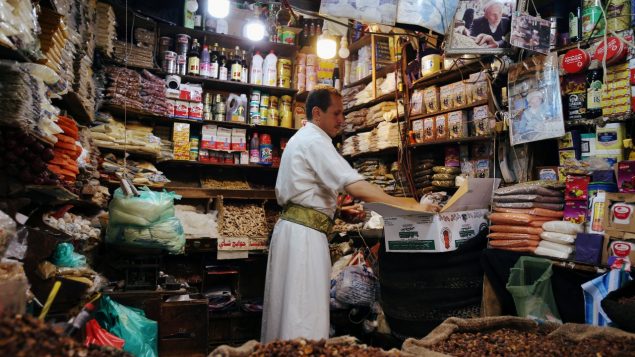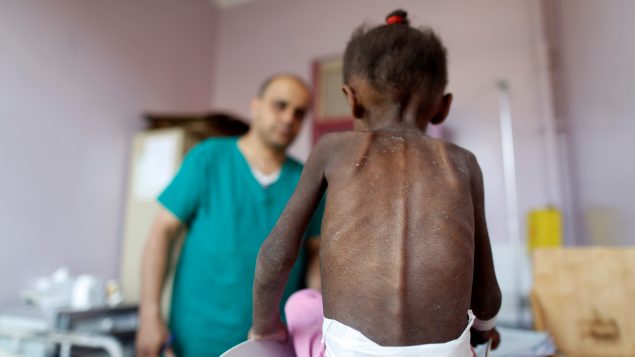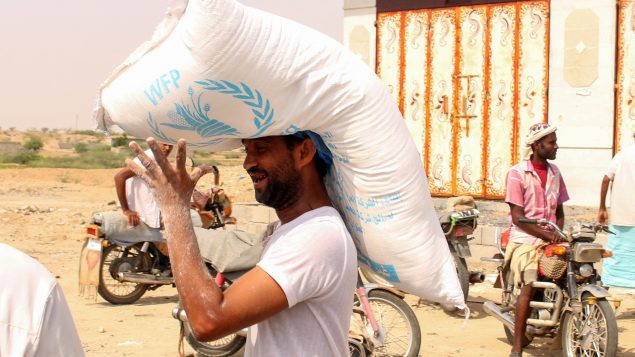Aid groups and United Nations humanitarian agencies are calling on the U.S. government to reverse its decision to declare Yemen’s Iran-backed rebels a terrorist group, warning it could lead to massive famine and exacerbate the already dire humanitarian situation in the war-torn Arab nation, but the Trump administration is refusing to budge.
The State Department on Sunday designated Yemen’s Ansar Allah, more commonly known as the Houthi movement, a foreign terrorist organization. The announcement by Secretary of State Mike Pompeop came following the Dec. 30 missile strike at Aden’s civilian airport targeting the newly formed Cabinet. UN officials believe the Houthis were behind the attack, which killed more than 25 people
The Houthis, who control the capital, Sanaa, and much of Yemen’s north, have been fighting the country’s internationally recognized government since 2014. A Western-backed, Saudi-led coalition of Arab states intervened the following year to try and restore the internationally recognized government, but years of UN efforts to get both sides to agree to a cease-fire and start peace negotiations have not succeeded.
Importers worry about getting caught up in sanctions

A spice vendor arranges goods in his shop at a market of the old quarter of Sanaa, Yemen Aug. 20, 2020. Yemen imports 90 per cent of its food and many importers say they are planning to stop doing business in the country, fearing of getting caught up in U.S. regulatory action. (Nusaibah Almuaalemi/REUTERS)
Briefing the online meeting of the UN Security Council on Thursday, UN humanitarian chief Mark Lowcock warned that the U.S. designation will likely lead to a “famine on a scale that we have not seen for nearly 40 years.”
Lowcock explained that Yemen imports 90 per cent of its food. He warned that commercial companies that facilitate those operations – suppliers, bankers, shippers and insurers – are considering stopping imports altogether because of worries of getting caught up in the U.S. regulatory action.
“Some suppliers, banks, insurers and shippers are ringing up their Yemeni partners and saying they now plan to walk away from Yemen altogether. They say the risks are too high,” Lowcock said.
Those who plan to remain, say their costs are likely to go up four-fold, Lowcock said.
“That will make it too expensive for many importers to keep doing business,” he said. “And in any case, hardly anyone in Yemen could afford to buy food brought in at those prices.”
‘We’re facing famine’

A nurse looks as he weighs a malnourished girl at a malnutrition treatment center in Sanaa, Yemen October 7, 2018. (Khaled Abdullah/REUTERS)
The World Food Programme (WFP) executive director, David Beasley, said 16 million Yemenis are already struggling to “get food every single day.”
“We’re facing famine in Yemen,” he said.
Nearly 11 million Yemenis are already at a crisis level of food insecurity, five million are at emergency level and 50,000 people are facing famine-like conditions, Beasley said.
Yet because of budget shortfalls, the Nobel Peace Prize-winning agency was forced to reduce the number of Yemenis receiving aid from 13 million to 9 million, and then to cut rations in half, Beasley said.
“We’re running out of money as we speak,” he said. “We need about $860 million is just to avert famine. And that’s for six months. We don’t even have half that.”
Learning lessons from Somalia’s famine
Save the Children president and CEO Janti Soeripto said the international charity has been warning for weeks that the terrorist designation of the Houthis, who are the de facto authorities in northern Yemen and control several large population centres, could directly threaten the supply of food, fuel and medicine in Yemen and hamper the humanitarian response in the country.
“Humanitarian actors have warned for weeks that the consequences of this decision could be catastrophic for countless children and their families in Yemen who are barely surviving,” Soeripto said in a statement.

Displaced Yemenis from areas near the border with Saudi Arabia carry World Food Programme (WFP) food aid, in the northern district of Abs in the country’s Hajjah province, on July 8, 2019. (Essa Ahmed/AFP via Getty Images)
The charity welcomed the U.S. decision to exempt some humanitarian efforts and critical commercial goods such as food and medicine from sanctions, but said more clarity was needed on how such exemptions will work in practice.
“Nearly ten years ago, the world watched in horror as the famine in Somalia claimed more than 250,000 lives,” Soeripto said.
“That famine was exacerbated by delays in aid resulting from the same kind of policies that failed to prioritize humanitarian needs. We should learn from history and not condemn Yemeni children and their families to the same fate,” Soeripto continued.
Tjada D’Oyen McKenna, CEO of Mercy Corps, said the U.S. designation will undermine the overstretched humanitarian response in Yemen.
The charity said it also expects that the designation will make it harder for the Yemenis living and working abroad to send remittances home to support their families, further exacerbating the extreme vulnerability of ordinary Yemeni families.
“Mercy Corps is deeply concerned about the harmful effects this decision will have on the 24 million Yemenis who rely on humanitarian assistance for survival,” D’Oyen McKenna said.
“Yemen is the world’s worst humanitarian crisis, and the severity of the situation for millions of people continues to deteriorate.”
The U.S. deputy ambassador, Richard Mills, told the Security Council on Thursday the U.S. has listened to warnings of the terrorist designation’s humanitarian impact and will take measures to reduce the impact on aid deliveries and commercial imports.
“But we do believe that this step is the right move forward to send the right signal if we want the political process to move forward,” he said.
With files from The Associated Press







For reasons beyond our control, and for an undetermined period of time, our comment section is now closed. However, our social networks remain open to your contributions.